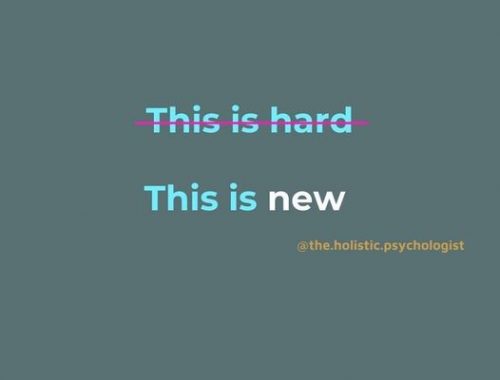Canberra Communications Professional series: Victoria Taylor
Victoria Taylor is a friend, colleague and mentor. We met when we were both asked to join the local PRIA board in an attempt to revitalise the brand in Canberra. While we’ve moved on from PRIA, a number of former committee members still keep in touch to share our worries, concerns and successes over glasses of wine and bowls of hot chips.
Victoria was one of my biggest supporters when I first started Elm Communications. She shared her advice and learnings from over a decade of running her own consultancy, Flourish Communication which specialises in agricultural communications. I was so grateful when she agreed to do this profile all the way from her new (temporary) home in Boston, Massachusetts.
Where do you currently work?
I have been the Director of Flourish Communication for the past 11 years.
What did you do before you started Flourish?
I came to communications in a roundabout way. I was a newly recruited industry association CEO in agriculture during the Millennium drought and the board had recently retrenched a number of staff to keep the organisation afloat. This included the comms manager. Of course, communication is a vital part of an industry association’s core business, so with no budget to recruit staff I needed to learn fast so I could undertake the communication function myself. I learned a lot about low cost, high impact campaigns so when I got pregnant a few years later and left full-time work I started my own business, Flourish Communication, to support industry with their comms. I used my experience in policy with my new communications expertise, to provide a unique service to clients – a good communicator who understood my clients’ political, governance and budget constraints.
After a few years I picked up government clients, seeking to communicate policy to stakeholders in agriculture. These days I do as much policy project work, as straight communications. Of course, you can’t have good policy without good communications, so it’s been a natural evolution for me. I also serve on boards in agriculture, where I bring my communications and stakeholder engagement skills to the table.
What does a typical day look like for you?
My days are full of client liaison, contractor liaison, planning, reading, writing and approving collateral. In other words, I spend a lot of time on my computer and on the phone.
Can you tell us about one of your career highlights?
There is a lot of duplication of the communication effort across agricultural industries. We could be so much more efficient and effective if we collaborated for impact more often. So I was thrilled to be contracted to develop collateral for a coalition of organisations from agriculture, fisheries, forestry, mining and tourism for a campaign to save the Fuel Tax Credits Scheme when it was under threat a few years ago. It wasn’t a large or high profile project, but the joy I got from telling the stories of diverse businesses and organisations, and demonstrating the link between policy and real world implications, means it still ranks as one of my favourite projects. Oh, and it was a successful campaign too, which was an added bonus!
What is the biggest challenge you have faced in your career? How did you overcome it?
During the Millennium drought I was working in agriculture in southern NSW where farmers and rural communities were under extreme pressure. It was virtually impossible to connect, as farmers were understandably focused on their own survival, rather than the industry’s future. They wouldn’t come off farm to events, they wouldn’t open their email (or their mail) and social media was very new. Trying to communicate policy, support or information was not going to work through traditional means, so it became a campaign in increments. Through focusing on local influencers, service providers (mechanics, accountants), existing non-agriculture networks (football clubs, churches) and women in communities, we were able to get information trickling out to those who needed it. It was an important lesson in understanding where your audience goes for information and meeting them there.
What changes do you think will occur in communications over the next decade?
I think we’ll be asked to do more. We’ve seen the communications function merge with engagement and marketing, and now I see senior leaders expecting their communicators to fix policy blunders and manage reputational risk. Communicators will continue to evolve from those who get their hands on the decisions last to broadcast to stakeholders to those who shape the strategy from the beginning to ensure positive outcomes.
Who inspires you? Why?
Communications professionals! We’re at the frontline, connecting people with ideas and information.
What is your favourite book or podcast?
I try to keep my listening diverse, so I dip in and out of podcasts on philosophy, history and science, but I’m a sucker for a business podcast. I love Pivot, WorkLife, Masters of Scale, Three Big Points, to name a few. I love business books too, but absolutely devour fiction. Through storytelling, fiction can explore society and relationships in ways non-fiction can not.
Who has been the most influential person in your career? Why?
I don’t think it’s one person. It’s my first clients who gave me a chance (sometimes replacing full service PR agencies), the farmers who influenced how I communicate for impact, the politicians who unwittingly shaped how I craft my campaigns, the communication professionals who’ve shared their ideas and knowledge, my collaborators who bring so much skill to our projects, and the experts who run workshops and conferences that inform my professional practice.
If you could share one tip with other communications professionals what would it be?
Stay curious. Explore the world and ideas. Get outside your head. Make links between what you see happening in the world, societal shifts, emerging trends and technologies with the “what, why and how” you communicate

A bit more about Victoria…
Victoria Taylor established Flourish Communication in 2009 to provide specialist strategic advice and communications services to a range of clients involved in primary industries.
Normally based in Canberra, Flourish assists government clients identify and communicate with stakeholders through the design and implementation of communication and engagement strategies, consultation frameworks, project management and reporting. Flourish also assists industry organisations with their communications activities, government relations, strategic planning and positioning and development of policy frameworks.
A Canberra local, Victoria is currently living in Boston, Massachusetts.
Learn more about Victoria: https://www.linkedin.com/in/victorialtaylor/

